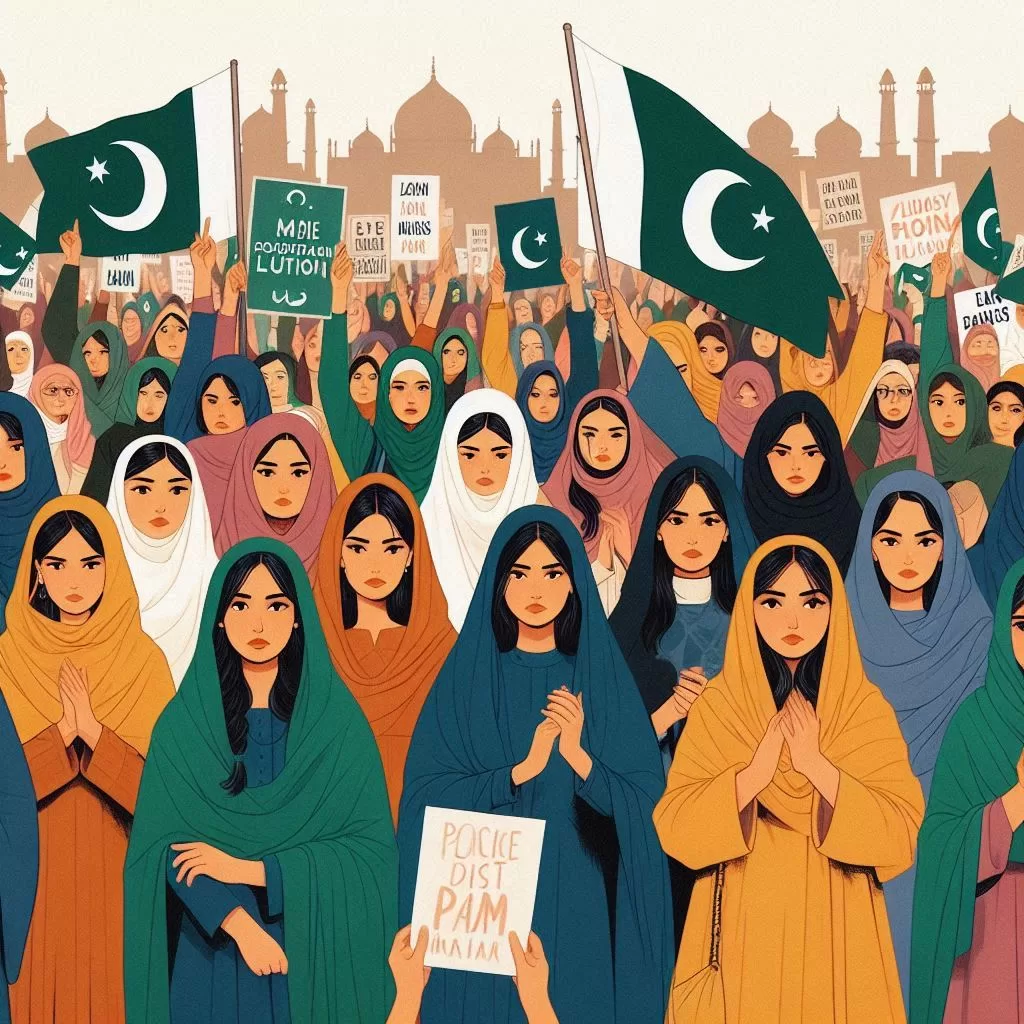Women make up 49.56% of Pakistan’s population, yet they remain marginalized in all sectors of society – be it political, economic, or social. According to the Free and Fair Election Network (FAFEN), only 4.6% of candidates were women in the 2024 elections. Excluding Afghanistan, Pakistan has the lowest share of women in the labor force in South Asia. UN reports that in 2023 more than 70% of women faced discrimination in the form of lower wages, more working hours, and unequal rights. The marginalization can only end when women take a brave stance for themselves.
Societies need heroes to show the way and stand up for those who cannot. The struggle is long, but it must start somewhere. Denmark today stands as the top country in terms of gender equality, but it did not happen overnight. In 1814, Denmark introduced universal primary education, and in 1915, women were given the right to vote and run for office. The shift in policies was made possible by influential female figures in the Danish Society who challenged the status quo and the patriarchal structure. One such woman was Charlotte Dorothea Biehl who brought a change through her novels and dramas and motivated women to get an education. Following in the footsteps of Sojourner Truth, American author Bell Hooks challenged the race and gender perspective in works like Ain’t I a Woman? Simone de Beavourie, a French writer, wrote The Second Sex which triggered a wave of feminism and led the suppressed women of France and the world against injustice. Another influential female writer was an English author Mary Wollstonecraft who enlightened British women through her writings for educational equality through her book “A Vindication of the Rights of Women”.
How a Bengali Woman Pioneered the Concept of Female Utopia – Invisiblites
In Pakistan, Fatima Bhutto has emerged as a writer who challenged the status quo and championed women rights. Fatima Bhutto is the granddaughter of Zulfiqar Ali Bhutto, the former Prime Minister of Pakistan. Despite belonging to the strongest political dynasty in Pakistan, Bhutto did not enter into politics. Rather, she decided to pick up her pen and put her thoughts on paper, giving voice to countless women living in the darkness. In a social structure devoid of a feminist framework, Bhutto is among those influential women who introduced feminist ideals. The feminist framework talks of getting rid of patriarchy and the introduction of equality in the social fabric – a structure designed by men to maximize benefits for themselves. Her novels “The Shadow of the Crescent Moon” and “The Runaways” focus on the exploitation faced by women in Pakistan. In her work, she has created female fictional characters to describe and conceptualize the hardships faced by women, focusing on those in the least developed parts of Pakistan. Bhutto’s women are strong and resilient and can succeed in every arena of society. She criticizes Pakistan’s patriarchal social structure and empowers women to break the shackles of exploitation. Bhutto does not hesitate to challenge the injustices committed by the powerful, be it the political dynasty she belongs to. Through her writing and activism, Bhutto has rightfully become a symbol of strength for Pakistani women.
Women like Fatima Bhutto are a treasure for society because of their courageous steps and contributions, and Pakistan is in dire need of more like her. Women must be empowered in educational, political, and economic arenas with social and financial investment in their development. Likewise, legal procedures must be strengthened and implemented against those who exploit. People should be made aware of women rights and the consequences of evil acts such as honor killing and domestic violence. The onus is on the women too, who must take steps for themselves and become equal beneficiaries of the system and resources. To achieve an inclusive society, Pakistan needs brave women who can raise their voices against suppression and injustice.
[Fizza Mehak Batool is an undergraduate student of International Relations at BUITEMS. She has written for Paradigm Shift and other outlets.]
Photo credits: Microsoft Copilot

Marvelous 😍